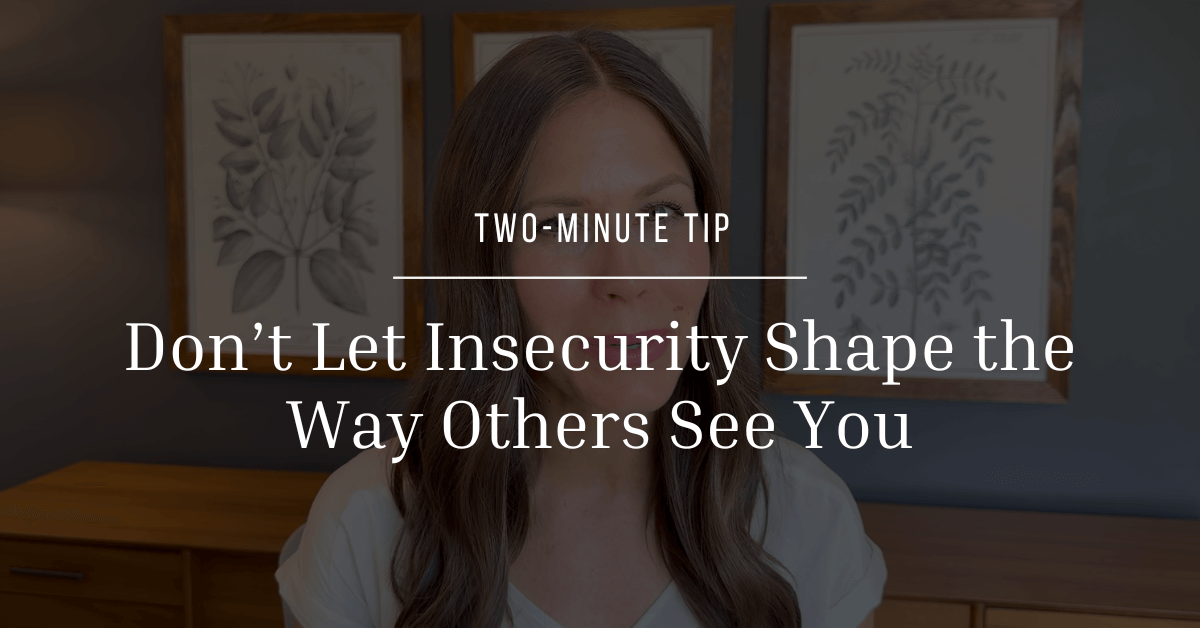Don’t Let Insecurity Shape the Way Others See You
What do middle school tennis and professional feedback have in common? More than you might think. In this video, I’m sharing a real-life moment from my daughter’s match that perfectly mirrors a dynamic I see all the time at work—how subtle insecurity can shift the way others perceive us.
If you’ve ever caught yourself downplaying your performance or second-guessing how you come across, this message is for you.
-
My oldest daughter, Kennedy is a gymnast. But the great thing about middle school is you can try out different sports for fun. So this last spring, she decided to give tennis a try, which I was secretly very excited about because I was a tennis player. Sadly, she didn't love it, but that's beside the point.
So in one of her matches, the other school was short on girls doubles teams. So she and her partner ended up playing two boys from the other school. Well, as the boys were walking out to the court, my husband and I overheard them saying something along the lines of, we better not lose to two girls, right? Of course, two middle school boys are not going to want to lose to girls on the court.
And in the first set, Kennedy was serving and the boys called two of her serves out that were clearly in. I mean, my husband and I were standing literally right up next to the fence watching the balls fall inside the lines and they were calling them out, but we kept our mouths shut.
Fast forward to the last game of the match and Kennedy's serving again and it's match point, she and her partner ahead. If they win this point, they win the match. She's serves it. It's clearly in. The boy misses the return completely. And then the girls ask, "Was that serve in?" To which the boys respond, "Oh no, it was out." Well, my husband and I are dying. I'm trying to keep his mouth shut at this point.
But such an interesting situation here where if they would've just proceeded and not questioned the performance, the match would've been done. Sadly, the match continued and the girls ended up losing as a result.
The same thing happens at work. If we are lacking a little confidence, we often ask for feedback in a way that that demonstrates we are lacking confidence. And when we showcase this insecurity, then others are going to, their perception of us is going to be influenced by that.
And so if we can shift how we approach this, it will help not cause them to view us as not performing well - not cause our insecurity to influence their perception of us.
I still think it's important to engage with humility and want to learn from feedback, but how we ask for it is very important. So let's say I give a big presentation that I'm nervous about, instead of going to my colleague after and saying, oh man, did that go okay? Did I, did I do okay? That is communicating, oh, I'm kind of insecure and I probably won't even get honest feedback.
Versus if I go to them and I say, Hey, what do you think went really well in that? And what could have been improved? What could I have done even better? Asking those two questions shows humility, but it also doesn't show this huge insecurity.
And so I want to encourage you even in those areas where you are feeling very insecure, ask for feedback in a way that shows you can handle it so you actually receive good feedback and in a way that doesn't influence others to doubt you as well.


